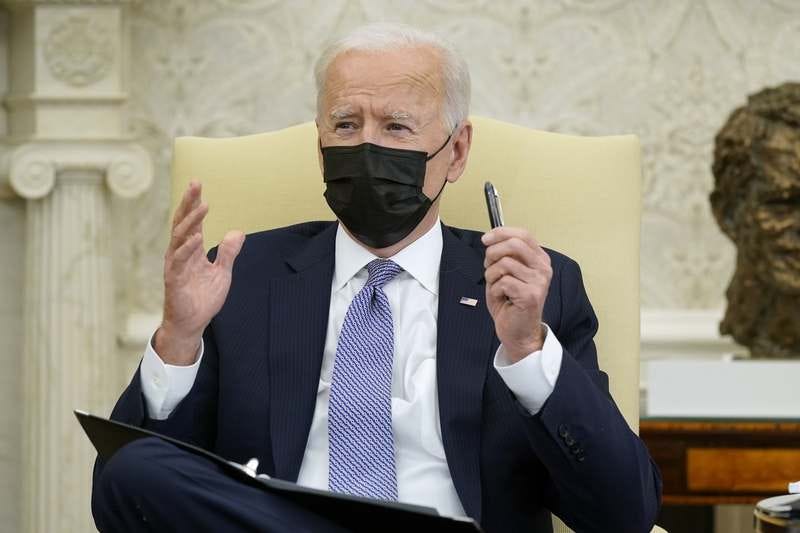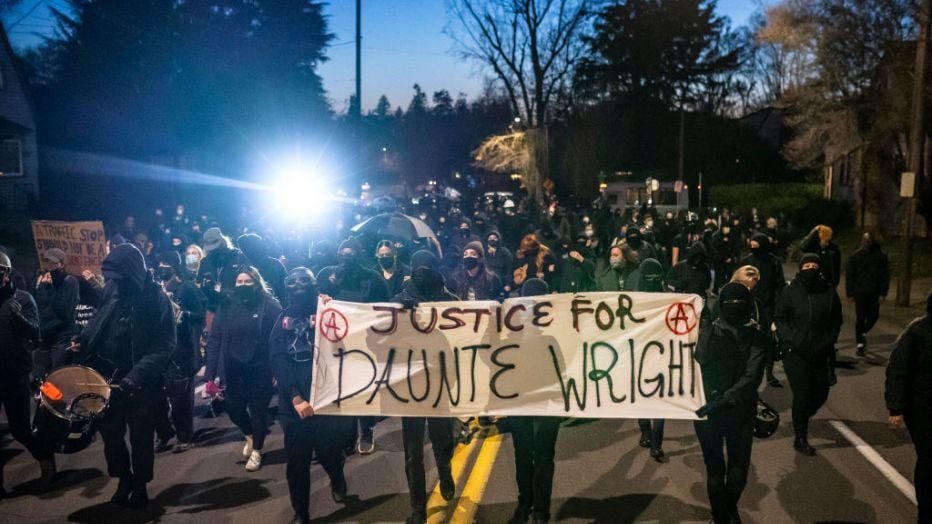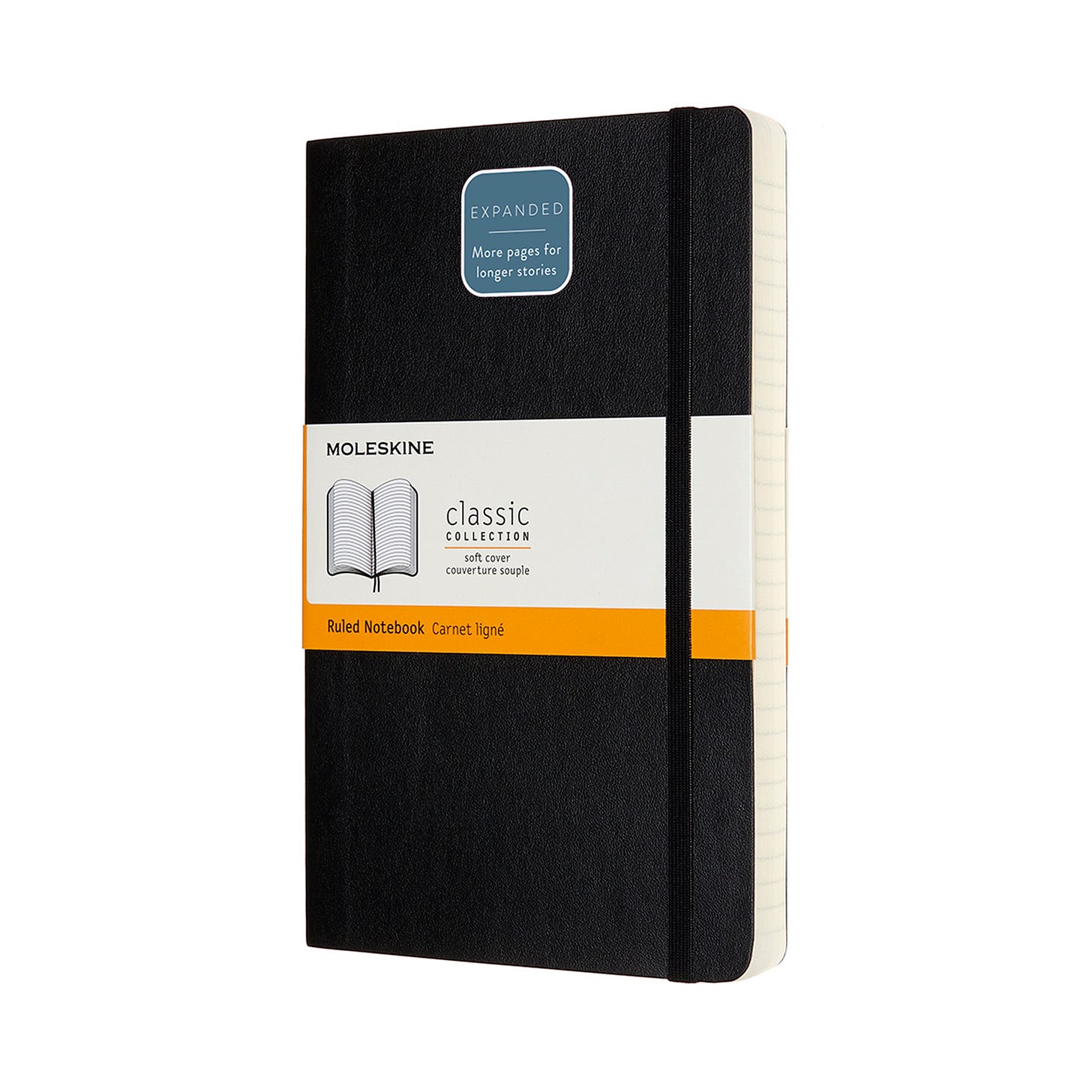President Biden, your white is showing
The leader of the free world’s comments yesterday on the Daunte Wright shooting show the limits of his renowned empathy.
The Star Tribune, Minnesota’s largest newspaper, called it a “historic fresh crack in the longstanding ‘blue wall’ code of silence by police.” I’m talking about Minneapolis Chief of Police Medaria Arradondo’s testimony at the Derek Chavin trial last week, which I caught after the fact — a decision designed to manage my anxiety (and expectations) until the verdict to decide if there will be accountability for George Floyd’s murder is rendered. But I was moved by a specific moment of candor from the chief:
Of all the things we do, as peace officers, for the Minneapolis police department, I mentioned that thousands of calls that our men and women respond to, it is my firm belief that the one singular incident we will be judged forever on will be our use of force. So while it is absolutely imperative that our officers go home at the end of their shift, we want to make sure that community members go home too. So sanctity of life is absolutely vital. That is the pillar for use of force.
Floyd didn’t go home on that unforgettable evening last summer. And I’m sure you’re aware by now that 20-year-old Daunte Wright didn’t go home either. He was murdered on Sunday, less than 10 miles away from where Chauvin is being tried, by a single bullet from the gun of a 26-year police veteran who claims to have mistaken her taser for a deadly service weapon. (Wright was pulled over for an expired license plate, which led to the discovery of an air freshener hanging from his rear-view mirror and a “gross misdemeanor warrant” over $346 in unpaid fines.) Former President Barack and former First Lady Michelle Obama said in a statement that the tragedy is another reminder of “just how badly we need to reimagine policing and public safety in this country.” Joe Biden, our current president, added: “The question is was it an accident? Was it intentional? That remains to be determined by a full-blown investigation. But in the meantime, I want to make it clear that there is absolutely no justification — none — for looting. No justification for violence.”
It’s worth noting that by the time the president was my age, he’d experienced immediate more loss than me. Just six weeks after he was elected senator from Delaware in 1972, his first wife and daughter died in a horrific car accident. And in 2015, Biden’s son Beau passed away from cancer. These events shaped the president's ability to identify and connect with the pain of others, a characteristic that has served him well in his political career. But his latest remarks reveal the limits of the president’s renowned empathy.
Whether Wright’s murder was accidental or intentional is a question only a white man who thinks the anti-racist police officers exist because — not in spite — of a country and criminal justice system that is working as it’s intended even though we’ve all seen and heard visual, scientific and anecdotal evidence to the contrary. In what world should the mere possibility that someone who swore an oath to protect and serve would intentionally kill someone is acceptable? Never mind the fact that Biden’s innocent inquiry is a luxury that we’ve been unable to afford for generations, yet many will ask themselves the same query because it offers them an excuse to feign confusion instead of taking action.
And there are few Black people who want to be lectured about whether looting is justified by a man who sits in the Oval Office due in part to the very people whose behavior he’s condemning said so. Or in the words of activist Bree Newsome Bass: “The notion that the chronic terrorizing [and] murdering of Black people by police is somehow shrouded in greater moral [and] legal ambiguity than thee looting of insured merchandise from a story only makes sense in a society that’s built on the enslavement of people of African descent.” Whether you disagree with looting as a respectable expression of protest shouldn’t distract you from the police violence and systemic racism that continues to fuel it.
Daunte called his mom Katie after he was stopped by the police. She said to ABC News’ Robin Roberts in an exclusive interview on today’s Good Morning America that she told him to take down the air fresheners hanging in his mirror and let her speak with the police over the phone if they asked for his car insurance so she could provide the information. That’s when the police asked him to get out of the car. That’s the last conversation she had with her son. “I lost my son, he’s never coming back,” Daunte’s father Aubrey said. “I can’t accept that — a mistake, that doesn’t even sound right. This officer has been on the force for 26 years. I can’t accept that.” He shouldn’t have to accept it. And we shouldn’t either.
In The Know
— Culture
Cardi B and Reebok joined forces to launch Summertime Fine, a collection of pieces in pastel hues and bright colors with cut-outs, mesh fabrics and cinched waist from sizes 2XS to 4X. Carol’s Daughter founder Lisa Price partnered with Latham Jones, a doula and founder of Mama Glow Foundation, on Love Delivered to raise awareness during Black Maternal Health Week this week. Instead of downsizing or right-sizing, baby boomers are upsizing their homes in retirement.
— Coronavirus
The CDC and FDA paused the Johnson & Johnson vaccine after six recipients experienced rare blood clotting. The US expects to have enough vaccine to meet demand by May though. As temperatures warm, scientists and public health experts say it’s safer to be outside, where the coronavirus is less viable.
— Politics
A new study found that any advantages of integrated schools for Black students were offset by racial hostilities from white classmates and their parents. Democrats and President Biden are poised to shore up the vulnerabilities of our health care system that have been exposed during the pandemic. Democratic Rep. Mondaire Jones, one of the first two openly gay Black men to win a Congressional seat, launched a political action committee to support the next generation of progressive candidates.
— Business
Consumer prices rose 0.6 percent in March — the sharpest increase in nearly nine years — as businesses struggle to keep pace with unexpectedly strong demand. Several new forecasts project the advertising industry will bounce back stronger than ever in 2021 and beyond after being pummelled during the onset of the pandemic last year. According to Siri, Apple is hosting an event next Tuesday where it’s speculated the tech company will intro a series of new products.
— Tech
Spotify launched Car Thing, its first hardware device aimed at Spotify Premium subscribers and features a touchscreen, a grippable knob for navigation, voice control features, and four preset buttons at the top for favorite music, podcasts or playlists. In an effort to engage kids more immediately, Netflix redesigned its Kids profiles on TV home screens to feature characters from their most-watched shows. Facebook’s ad products enable businesses to send conflicting messages to users based on their political ideology. Facebook is also testing Sparked, a speed-dating app that will set users up on four-minute video dates. And the Facebook Oversight Board will now allow users to appeal for posts to be taken down from the app.
Read All About It
Charles P. Pierce at Esquire on the Daunte Wright shooting:
Put simply, ordinary citizens living ordinary lives should not be afraid of the police. If police officers are trained to do their jobs through fear and intimidation linked to a hair-trigger, then something is badly wrong with the way we train police officers. And to have another incident in an area currently in the middle of the highest-profile police-violence case in years bespeaks a certain insensitivity to the larger social context that guarantees this will happen again and again. And, very likely, again.
Eric Scigliano at The Atlantic on Zoom court:
America’s courts are burdened by weighty encrustations of complexity and habit, from black robes and “All rise” to arcane trial procedures. COVID-19 has forced them to improvise and experiment. Now, as a post-pandemic future glimmers, we have a chance to reflect. How much of that experimentation will survive after the crisis abates? Given the stakes involved in the justice system, how much should?
There are good reasons to be wary of moving fast. An estimated 42 million Americans live beyond the reach of broadband service, and older people may be unable or unwilling to master videoconferencing technology. Douglas Hiatt, a Seattle defense attorney, refuses to try cases remotely (“They can hold me in contempt if they want”). “A lot of my clients are poor,” he told me. “They don’t have access to the internet … And plenty of folks are illiterate or non-English speakers and cannot navigate this stuff.”
Courthouses have addressed the digital divide by setting up Zoom kiosks and, in Texas, lending tablets to jurors. Defendants can log in at libraries, if they’re open, or call in by phone. But imagine trying to plead your case before a judge while your phone cuts in and out, your kids wail in the background, or library patrons hiss shhhh.
Emma Specter at The Cut on hanging out:
Don’t get me wrong—I’m thrilled beyond belief to have some semblance of my social life back, and if there’s one thing the last year has taught me, it’s that a computer screen is no replacement for the feeling of actually spending time with my friends IRL. Still, I think there should be an informal time limit on hangouts as we all adjust to living in the world again, and my proposal involves a two-hour cap. That number might sound arbitrary, but think about it: Two hours is enough time to get coffee and stroll in the park, try on clothes together at a vintage store, catch up over several rounds of drinks, or grab dinner (assuming you pick a restaurant without too much of a wait).
Meghan McCarron at Eater on Instagram pop-up bakeries:
But working at the absolute capacity of their home kitchens, for a year straight, means burnout is very real. Multiple chefs I spoke to said their houses were full of pastry boxes and their fridges full of butter and freezers full of ice cream; they cooled cakes in stages on tiny counters and used stimulus money to buy equipment; their plants are long dead and their kitchens reek of fryer oil; their phone won’t stop binging, and when their oven died, they switched to steamed and boiled desserts. For all of them, home is no longer merely home: It’s the world’s worst commercial kitchen, with a bedroom attached. They welcome press, but they hope their landlord doesn’t see the photos.
Rebecca Jennings at Vox on TikTok:
TikTok is, to my knowledge, the only major social platform that has had to build in a function to tell you to log off of it if you’ve been scrolling for more than an hour — and of course, everyone hates said function. You open TikTok and it knows exactly what your eyeballs want to look at most, to the point where people joke that their For You page knows more about them than they do.
This has mostly made my life better, or at least more entertaining. But at a certain point, it begins to feel ever so slightly like the central object of David Foster Wallace’s Infinite Jest, a video so captivating you no longer have any desire to do anything besides watching it until you slowly lose your mind.
Whenever I want to feel and think nothing, which is a lot of the time, I go on TikTok. I’ve tried to use this as a force for good: I’ve started scrolling TikTok while on the treadmill so that I’m less focused on the agony of being on a treadmill, even though I’m doing an exercise routine I learned from, of course, TikTok. I’ve had to instill screen time rules in a way I never have with any other platform: I no longer allow myself to scroll at night in bed, when simply opening the app could destroy my sleep cycle for a week.
Paul Waldman at The Washington Post on President Biden’s public persona:
To be clear, it would be better if Biden did more interviews and spoke to reporters more often. Presidents should be willing to answer questions on a regular basis. And there are times when the public part of the president’s job is as critical as any other — when, for instance, there has been a national tragedy and the country looks to him to draw us together and help make sense of events.
But we should never forget that most of the time, being a good public performer is not the same as excelling at governance. If Trump taught us anything, it’s that you can put on a captivating show and still be a disaster of a president. If Biden turns out to be the opposite on both counts, we should be thankful.
Michael’s Pick
Moleskine Expanded Version Soft Cover Classic Notebook Ruled Notebook in Black ($30): Most of the columns that open each newsletter start as nascent arguments that I’ve scribbled in one of these notebooks with a Muji or Sharpie pen.





